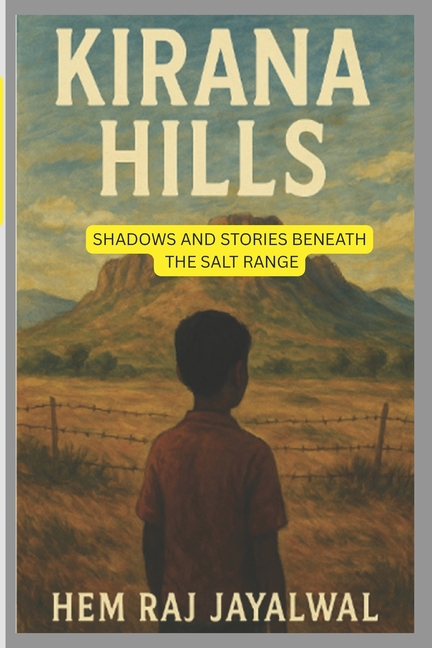Description
KIRANA HILLSNestled within the Salt Range of Pakistan's Punjab province, the Kirana Hills stand as silent witnesses to the passage of time-a rugged landscape etched with layers of history, culture, conflict, and resilience. This book tells the compelling story of these hills through the eyes of Zayan, a curious and sensitive 12-year-old boy from Lahore, who arrives one summer to spend time with his uncle, a retired army officer living in the nearby village of Choa.What begins as a routine visit quickly transforms into a profound journey of discovery for Zayan. He finds himself immersed in a land where the ordinary rhythms of daily life unfold against the extraordinary backdrop of military secrecy and nuclear testing. The Kirana Hills, once a place of ancient trade routes and Mughal hunting grounds, have in recent decades become synonymous with Pakistan's nuclear ambitions and the shadow of military operations. The book unearths how these developments have irrevocably shaped the lives, environment, and spirit of the local people.Through rich, evocative prose and vivid storytelling, the narrative explores the complex demographic fabric of the region, dominated by ethnic Punjabi and Saraiki communities bound by faith, folklore, and shared hardship. Zayan learns of the oral histories that preserve the memory of ancestors, the folk practices that tie people to the land, and the livelihoods centered on shepherding, farming, and small-scale mining. Yet, beneath this cultural tapestry lies the unease born from decades of military presence-restricted movement, whispered fears, and a profound sense of sacrifice felt by the community.One of the most haunting chapters of the story revolves around the nuclear tests conducted secretly in the Kirana Hills during the 1980s. Locals whisper of strange illnesses, dying crops, and birds falling from the sky, while official narratives deny any harm. Zayan's encounter with an abandoned nuclear test site, fenced and silent, becomes a powerful symbol of the land's invisible wounds and the complex cost of national pride.Further shadows are cast by Operation Sindoor, a covert military operation in the 1990s that resulted in unacknowledged civilian casualties and lasting scars on the soil and people. The book gives voice to the silent victims-families who lost loved ones, stories buried by secrecy, and a community grappling with grief in isolation.Amid these heavy themes, the heart of the story lies in the friendship between Zayan and Faheem, a local boy whose knowledge of the hills, their hidden caves, and secret military bunkers bridges the gap between innocence and harsh reality. Their adventures-climbing fig trees, fishing in mountain streams, and sharing stories under the glow of oil lamps-offer moments of warmth, laughter, and connection in a landscape marked by barbed wire and watchtowers.The book also delves deeply into daily life in this militarized zone-the morning call to prayer echoing over barren rocks, simple meals of warm roti and goat milk, afternoons spent exploring with caution, and evenings filled with storytelling that blends folklore and memory. Through Zayan's eyes, readers experience the resilience of a community that continues to live, love, and dream despite the shadows around them.Zayan's habit of keeping a diary, filled with sketches and reflections, provides an intimate window into his evolving understanding of Kirana Hills-not just as a place of beauty and danger, but as a living memory of sacrifice and survival. His dreams are haunted by images of war and hope, loss and life, capturing the emotional landscape of a land forever changed.This book is more than a narrative; it is a tribute to the indomitable spirit of Kirana's people and the enduring power of friendship and memory. It challenges readers to consider the unseen costs of conflict and progress, while celebrating the resilience that makes life possible even in the most wounded places.
Last updated on
Product Details
- Jun 3, 2025 Pub Date:
- 9798286377305 ISBN-10:
- 9798286377305 ISBN-13:
- English Language




